
Ngozi: The Green Heart of Burundi
Nestled in the lush highlands of northern Burundi, Ngozi is a serene town known for its picturesque landscapes and rich cultural heritage. As you arrive, you will be greeted by rolling hills blanketed in verdant tea plantations and small farms, painting a tranquil yet vibrant picture of rural life in Burundi. The climate here is mild and pleasant, making it an ideal destination for those looking to escape the hustle and bustle of city life. Ngozi is not just about its natural beauty; it is also a hub of Burundian culture and traditions. The local markets are a must-visit, offering a colorful array of handmade crafts, fresh produce, and traditional garments. Don't miss the opportunity to engage with the friendly locals, who are always eager to share stories of their heritage and way of life. For the more adventurous, Ngozi offers a variety of outdoor activities. Hiking trails abound, leading you through scenic routes that showcase the region's stunning biodiversity. Bird watchers will be delighted by the variety of avian species that call this area home. Additionally, the nearby Kibira National Park, with its dense forests and exotic wildlife, makes for an excellent day trip. Whether you're a nature enthusiast, a culture seeker, or simply someone in need of a peaceful retreat, Ngozi has something to offer everyone. Its unique blend of natural splendor and cultural richness makes it a gem waiting to be discovered.
Local tips in Ngozi
- Visit the local markets early in the morning for the freshest produce and best selection of handmade crafts.
- Bring comfortable hiking shoes to fully enjoy the numerous trails and natural scenery.
- Engage with local guides for a richer cultural experience and insider knowledge of the area.
- Consider a visit to Kibira National Park for a day of wildlife spotting and forest exploration.
- The climate is mild but can be unpredictable, so pack layers to stay comfortable.
Ngozi: The Green Heart of Burundi
Nestled in the lush highlands of northern Burundi, Ngozi is a serene town known for its picturesque landscapes and rich cultural heritage. As you arrive, you will be greeted by rolling hills blanketed in verdant tea plantations and small farms, painting a tranquil yet vibrant picture of rural life in Burundi. The climate here is mild and pleasant, making it an ideal destination for those looking to escape the hustle and bustle of city life. Ngozi is not just about its natural beauty; it is also a hub of Burundian culture and traditions. The local markets are a must-visit, offering a colorful array of handmade crafts, fresh produce, and traditional garments. Don't miss the opportunity to engage with the friendly locals, who are always eager to share stories of their heritage and way of life. For the more adventurous, Ngozi offers a variety of outdoor activities. Hiking trails abound, leading you through scenic routes that showcase the region's stunning biodiversity. Bird watchers will be delighted by the variety of avian species that call this area home. Additionally, the nearby Kibira National Park, with its dense forests and exotic wildlife, makes for an excellent day trip. Whether you're a nature enthusiast, a culture seeker, or simply someone in need of a peaceful retreat, Ngozi has something to offer everyone. Its unique blend of natural splendor and cultural richness makes it a gem waiting to be discovered.
When is the best time to go to Ngozi?
Iconic landmarks you can’t miss
Bujumbura Zoo
Discover the enchanting world of wildlife at Bujumbura Zoo, where education meets fun in a lush and serene environment.
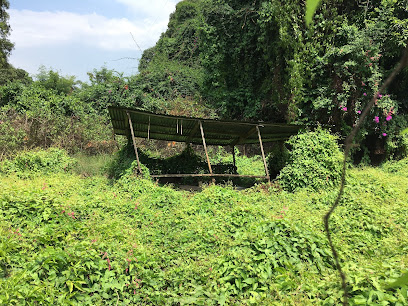
Marché central de Bujumbura Siyoni
Discover the bustling Marché Central de Bujumbura Siyoni, where vibrant local culture, delicious food, and unique crafts await every traveler.
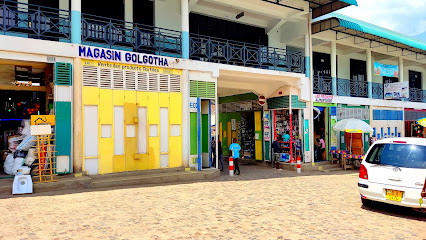
Hôtel Des Plateaux
Experience the charm and tranquility of Hôtel Des Plateaux in Ngozi, a perfect base for exploring the beauty of Burundi and its rich culture.

Livingston-Stanley Monument
Explore the Livingston-Stanley Monument, a tribute to exploration and adventure, nestled in the heart of Ramba's scenic landscape.
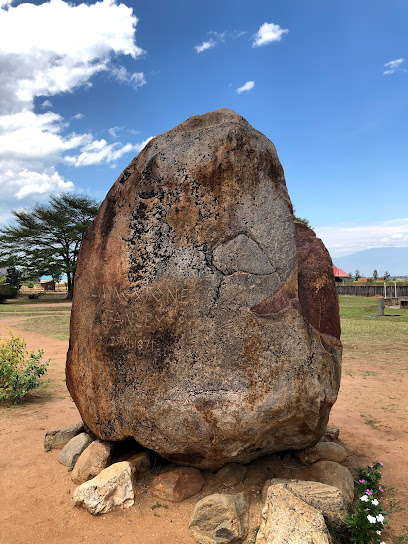
Gishora Drum Sanctuary
Immerse yourself in the vibrant cultural heritage of Burundi at Gishora Drum Sanctuary, a UNESCO World Heritage site celebrating traditional drumming.
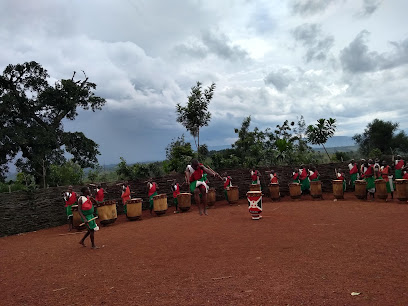
Burundi Tourism Transport
Explore the beauty and culture of Burundi with tailored tours from Burundi Tourism Transport, your trusted travel partner in East Africa.
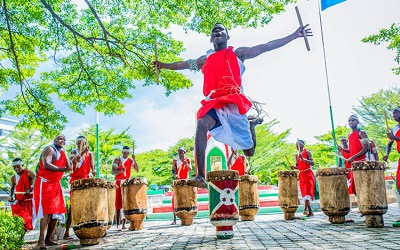
Kibira National Park
Explore the serene beauty and rich biodiversity of Kibira National Park, a prime destination for nature lovers and adventurers in Burundi.
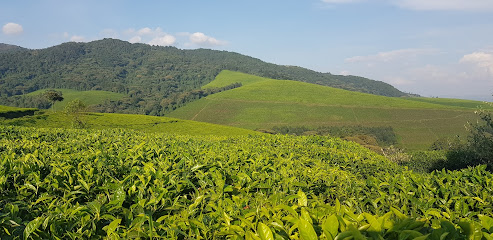
Ruvubu National Park
Discover the breathtaking landscapes and diverse wildlife of Ruvubu National Park, an untouched paradise in Burundi for nature enthusiasts and adventure seekers.
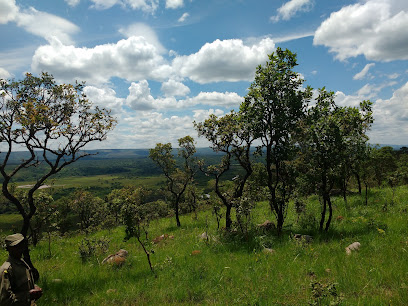
Rusizi National Park
Explore the breathtaking landscapes and diverse wildlife of Rusizi National Park, a natural paradise in the heart of Burundi.
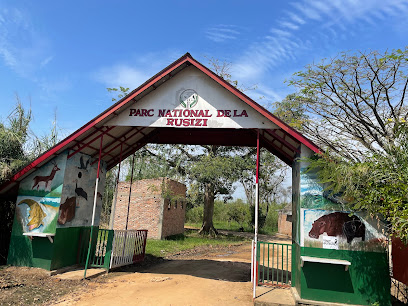
Eglise Vivante
Experience spiritual serenity at Eglise Vivante, a vibrant Evangelical church in Bujumbura inviting tourists for cultural immersion and community connection.
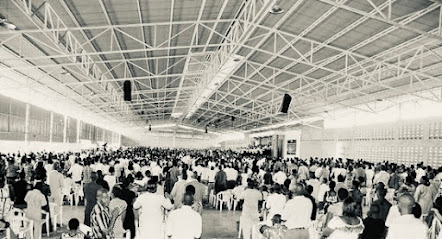
Regina Mundi Cathedral
Explore Regina Mundi Cathedral in Bujumbura, a stunning church rich in history and architectural beauty, offering a peaceful retreat for all visitors.
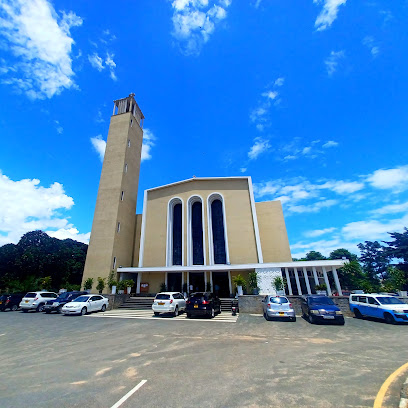
Augustine Tours
Discover the beauty of Bujumbura with Augustine Tours - your trusted partner in exploring Burundi's rich culture and stunning landscapes.
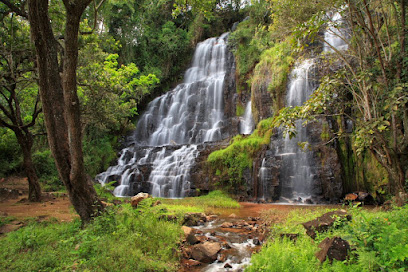
Burundi Discovery Tours
Experience Burundi's breathtaking landscapes, rich culture, and warm hospitality with Burundi Discovery Tours, your trusted guide to East Africa's hidden gem.
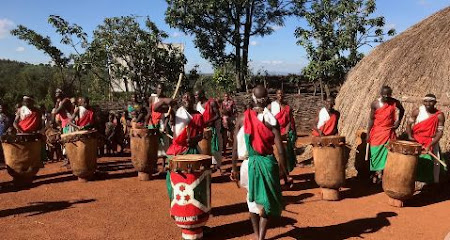
Historic Swahili District of Buyenzi
Discover the Historic Swahili District of Buyenzi: A Cultural Gem in Bujumbura with Stunning Architecture and Rich Heritage.

Visit Burundi
Experience the beauty and culture of Burundi with Visit Burundi, your guide to an unforgettable adventure in East Africa.

Unmissable attractions to see
Ethnographic Museum
Explore Rwanda's cultural heritage at Butare's Ethnographic Museum, a key destination for understanding the nation's rich traditions and history.
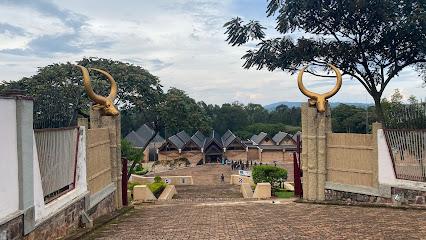
Kibira National Park
Discover the breathtaking landscapes and rich biodiversity of Kibira National Park, a must-visit natural wonder in Burundi.
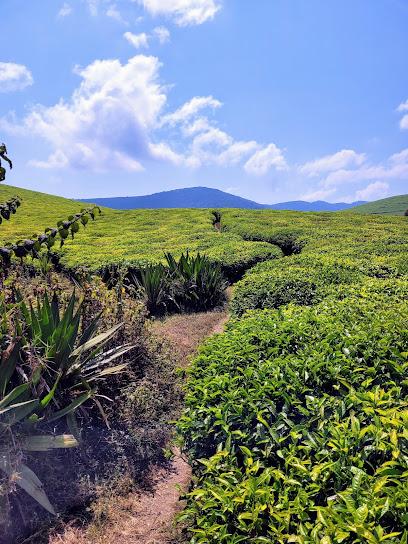
Rusizi Delta Natural Reserve ENTRANCE
Explore the breathtaking landscapes and rich biodiversity of Rusizi Delta Natural Reserve, a hidden gem in Burundi for nature lovers and adventurers.
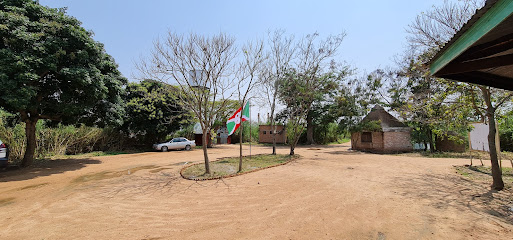
Market Central
Discover the vibrant atmosphere of Market Central in Bujumbura, where culture, cuisine, and community come together in a lively marketplace experience.
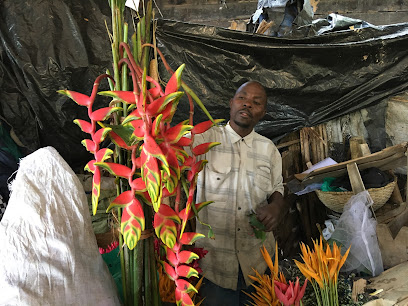
Lake Rweru Viewpoint
Experience breathtaking panoramic views of Lake Rweru, a hidden gem in Burundi's tranquil countryside, perfect for nature lovers and peaceful escapes.
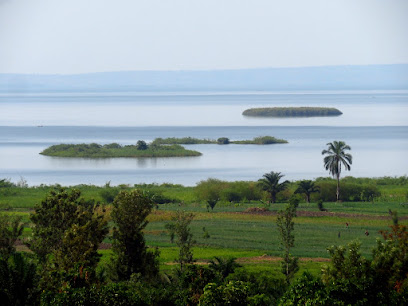
Alessia Mosca Verginity
Explore the stunning landscapes and rich culture at Alessia Mosca Verginity, a premier tourist attraction in Bujumbura, Burundi.

Chute de NYABUKONGORO
Explore Chute de Nyabukongoro in Muramvya, a breathtaking waterfall that offers stunning views and a peaceful escape into nature's beauty.
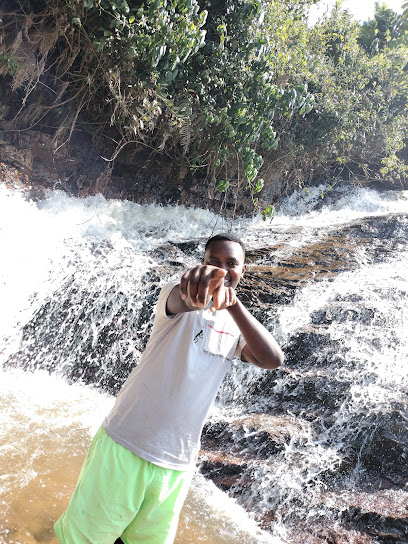
ROYAL HOME
Discover the heart of Burundian culture at Royal Home, a must-visit attraction in Bujumbura for an authentic experience.
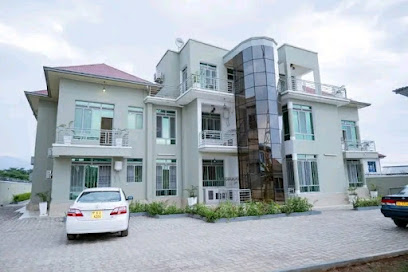
Cloches de la Cathédrale des Martyres
Discover the spiritual and architectural beauty of Cloches de la Cathédrale des Martyres in Ruyigi, Burundi. A landmark of faith and history.

kivogero
Discover Kivogero, Ijenda: A blend of Burundi's natural beauty and cultural richness, offering a serene and authentic travel experience.

Buiya Bari,Burundi
Discover the tranquility of Buiya Bari in Burundi, a perfect hiking paradise for nature lovers and adventurers seeking breathtaking views.

Essential places to dine
Zanzi
Experience the vibrant flavors of Bujumbura at Zanzi – where local meets global in an inviting atmosphere.
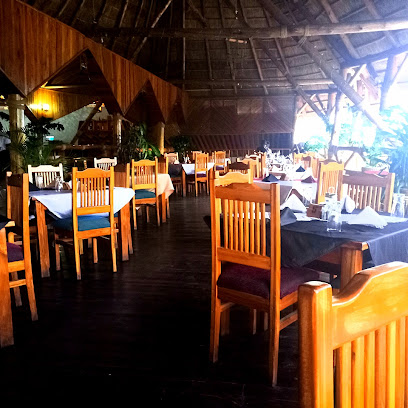
Harrys Grill House
Discover authentic Burundian flavors at Harry's Grill House – a premier destination for grill enthusiasts in Bujumbura.
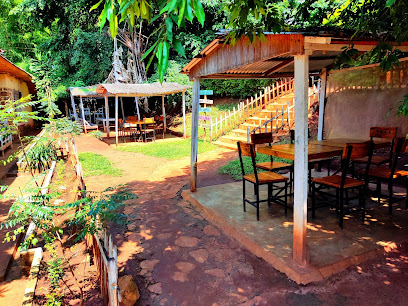
Hôtel Des Plateaux
Discover tranquility at Hôtel Des Plateaux in Ngozi - your perfect base for exploring Burundi's breathtaking landscapes.

BELAN Hôtel de Ngozi
Experience comfort and cultural immersion at BELAN Hôtel de Ngozi, your ideal retreat in Burundi's scenic Gatare region.

Restaurant Chez Orphée
Experience authentic Burundian cuisine at Restaurant Chez Orphée in Bujumbura – where every meal tells a story.
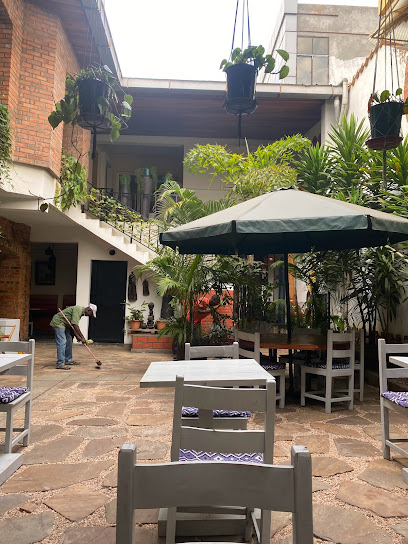
Restaurant Oasis
Experience authentic Burundian cuisine at Restaurant Oasis in Bujumbura – where local flavors meet warm hospitality.
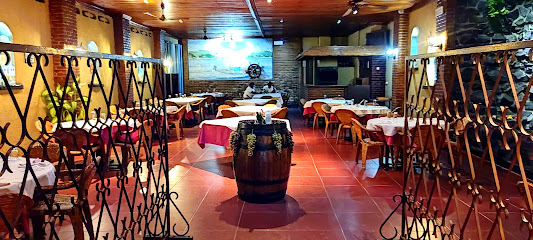
Restaurant Tanganyika
Discover exquisite flavors at Restaurant Tanganyika with stunning views of Lake Tanganyika in Bujumbura.
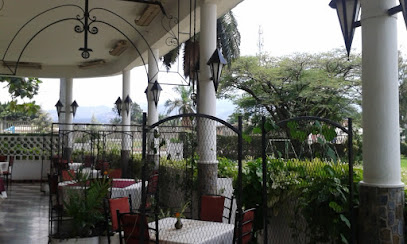
NEW KIGOBE
Discover tranquility at New Kigobe Hotel in Ngozi - where comfort meets nature in beautiful Burundi.

Cup Line
Experience the vibrant flavors of Burundi at Cup Line, Bujumbura's beloved restaurant offering local and international cuisine in a welcoming atmosphere.
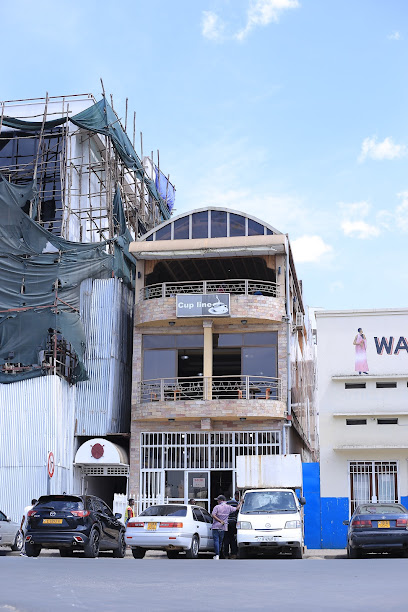
LENOX
Experience authentic Burundian cuisine at Lenox in Gitega—where every meal is a celebration of local flavors.
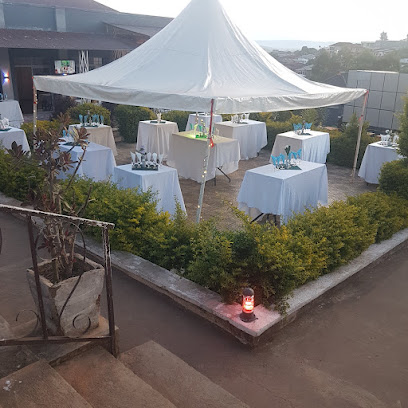
Favina Home
Discover authentic Burundian grilled cuisine at Favina Home in Gitega's Quartier Rango - where flavor meets tradition.
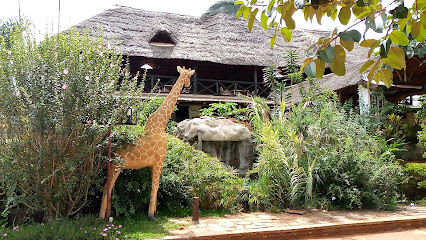
Emmarenzo - Bar & Restaurant
Experience authentic Burundian hospitality at Emmarenzo - your go-to bar & restaurant in Ngozi for delicious food and vibrant atmosphere.
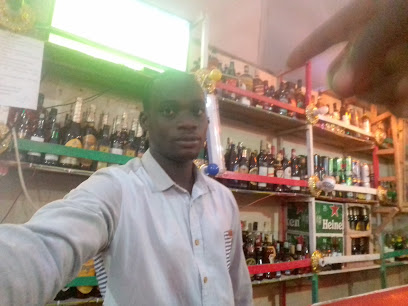
Food palace
Discover the rich flavors of Burundi at Food Palace in Kayanza - where every meal is a delightful culinary journey.
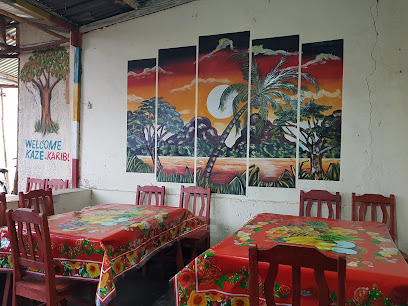
Chez COBRA
Experience authentic Burundian cuisine at Chez COBRA in Gitega - a hidden gem for culinary enthusiasts seeking local flavors.

Sangwe Hotel & Restaurant
Discover authentic Burundian cuisine at Sangwe Hotel & Restaurant in Ngozi – where every meal tells a story.

Markets, malls and hidden boutiques
Ngozi Central Market
Explore Ngozi Central Market: A Vibrant Showcase of Burundian Culture, Crafts, and Cuisine in the Heart of Ngozi.
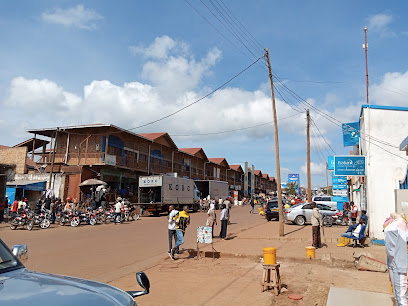
Afils Pharmacy
Discover Afils Pharmacy in Ngozi: Your trusted source for health essentials and local remedies while traveling.

Marché de Rubuye
Discover the vibrant essence of Burundian culture at Marché de Rubuye, a lively market filled with fresh produce and unique crafts.
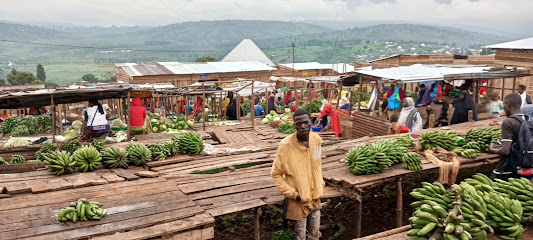
Niwakal zoom hall
Explore the vibrant ambiance of Niwakal Zoom Hall, where local flavors meet unique decor in the heart of Ngozi.
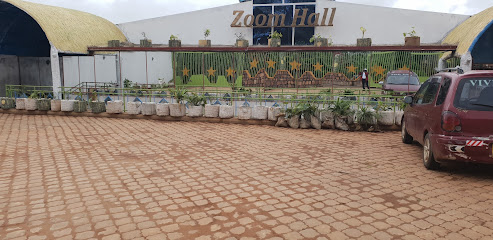
The Children
Explore the vibrant local flavors of Ngozi at The Children Grocery Store, where fresh produce meets Burundian hospitality.
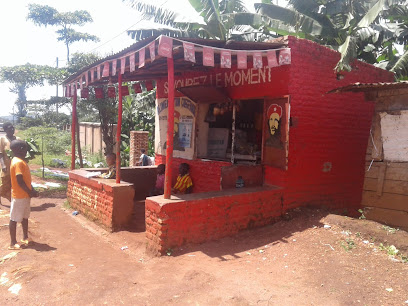
Galerie de Ngozi Chez BIHOME
Discover the rich craftsmanship and unique products at Galerie de Ngozi Chez BIHOME in Ngozi, Burundi, a hub for local artistry and culture.
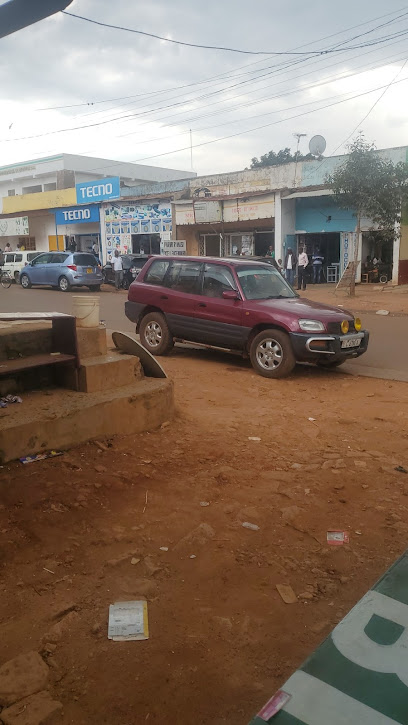
Accesoires
Discover local crafts and delicious cuisine at Accesoires Shopping Mall in Ngozi, a vibrant hub for tourists seeking authentic experiences.

MAGASEN
Discover MAGASEN, the ultimate cell phone accessory store in Ngozi, where quality meets convenience for all your mobile needs.

Pharma Care Ngozi
Discover Pharma Care Ngozi: Your reliable pharmacy for all health needs while traveling in beautiful Ngozi.
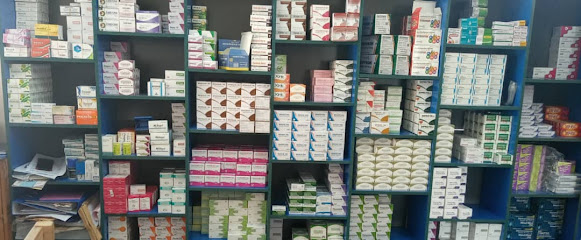
Entreprise générale delta for construction
Explore Ngozi's premier destination for building materials, offering quality products and expert advice for all your construction projects.
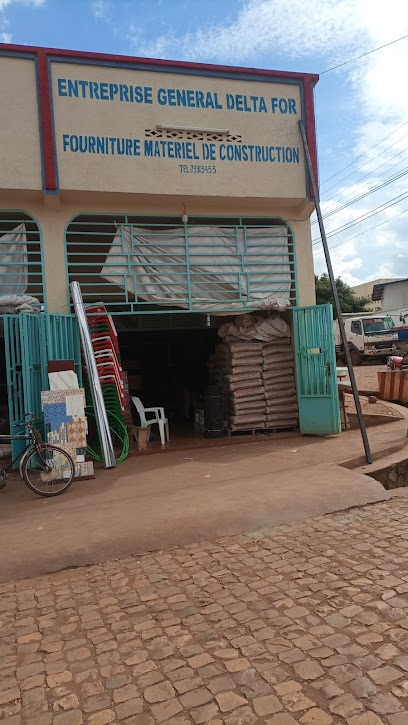
Hakiza lili
Explore Hakiza Lili in Ngozi, Burundi for an authentic shopping experience featuring a variety of electronics and friendly local service.
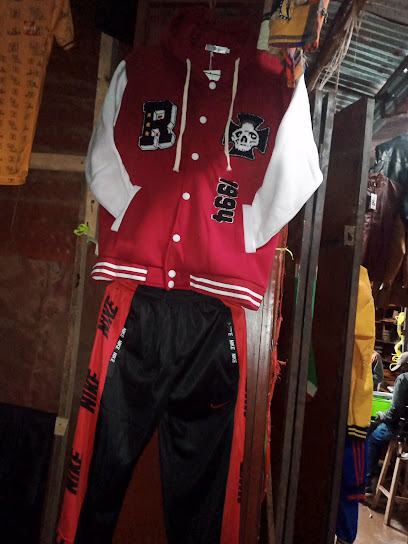
Shikiro
Discover the vibrant marketplace of Shikiro Shopping Mall, where local culture meets modern shopping in the heart of Ngozi, Burundi.
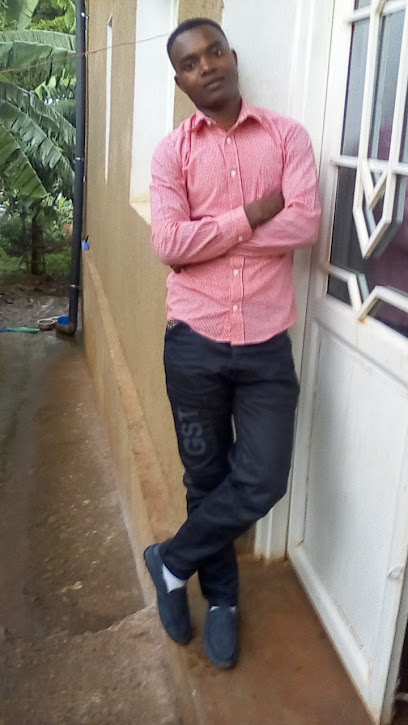
Ngozi
Experience the heart of Bujumbura's shopping scene at Ngozi, where local culture meets vibrant retail therapy.

Esron's shop
Explore Esron's Shop in Ngozi for unique Burundian crafts, textiles, and gifts that capture the essence of local culture.

Boucherie
Explore the authentic tastes of Burundi at Boucherie in Ngozi, where fresh, locally sourced meats bring local culinary traditions to life.
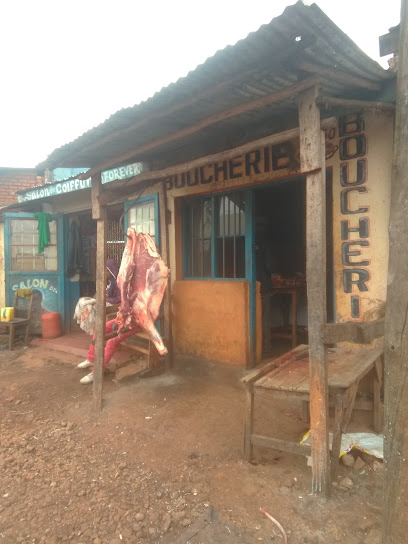
Essential bars & hidden hideouts
Emmarenzo - Bar & Restaurant
Experience the vibrant nightlife of Ngozi at Emmarenzo Bar & Restaurant, where local flavors and friendly service meet.
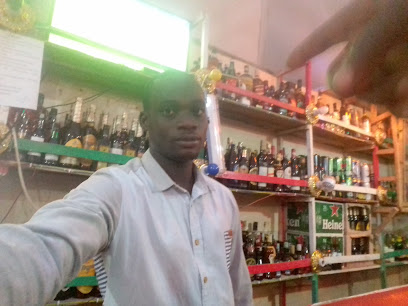
Ngozi Garden restaurant
Experience the unique flavors and tranquil ambiance of Ngozi Garden Restaurant in Kinyana, your perfect dining spot in Burundi.
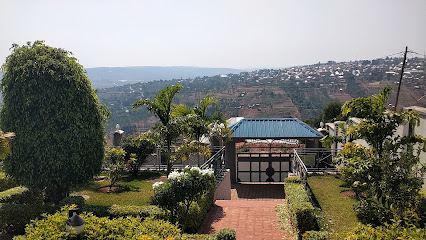
Satellite of East Africa
Explore the rich flavors of East African cuisine at Satellite of East Africa in Ngozi, where every meal tells a story.
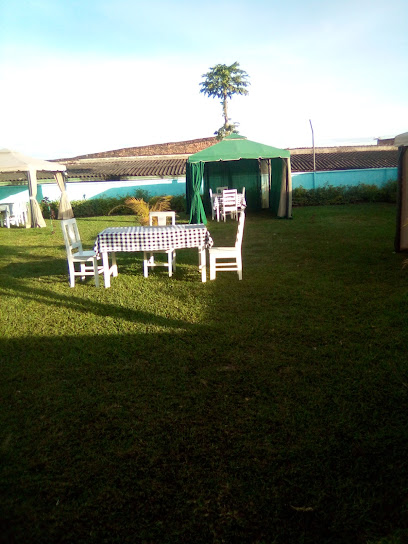
BEST GARDEN RESTO-BAR
Experience the vibrant atmosphere and refreshing drinks at Bujumbura's Best Garden Resto-Bar, a perfect spot for relaxation and socializing.

Hôtel Restaurant Bar LaReine
Experience unparalleled comfort and local flavors at Hôtel Restaurant Bar LaReine, the perfect retreat for travelers in Ngozi, Burundi.
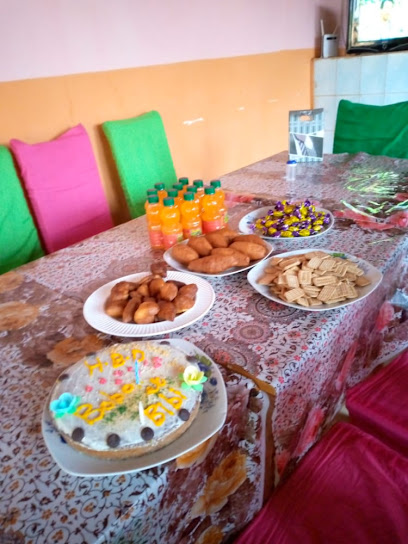
BURUNDI BREWERY S.A
Experience the rich flavors of Burundi at Burundi Brewery S.A., where local ingredients meet traditional brewing techniques for unforgettable tastes.
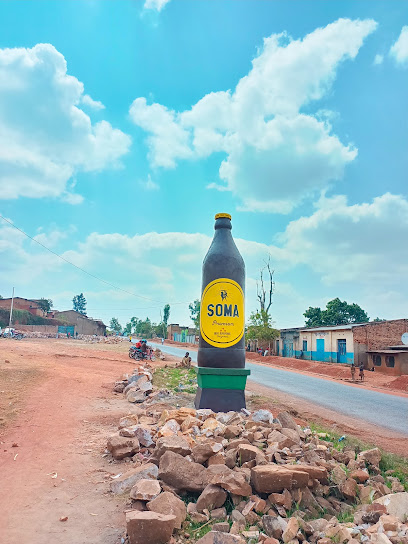
BAR FACEBOOK
Experience the vibrant nightlife and local culture at BAR FACEBOOK in Vumbi, the perfect spot for drinks and socializing.

Restaurant Dusangire
Experience the authentic flavors of Burundi at Restaurant Dusangire, where local cuisine meets warm hospitality in the heart of Ngozi.
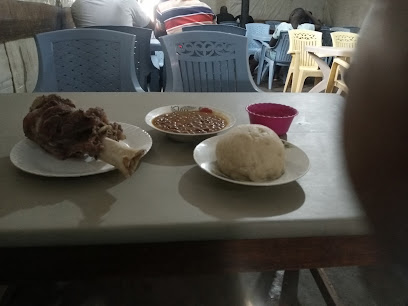
BAR KUMUKONI
Experience the vibrant local culture at Bar Kumukoni in Gitega, a lively bar offering traditional beverages and a welcoming atmosphere.

Tapis Vert
Discover the charm of Tapis Vert, a cozy bar in Ngozi, perfect for relaxing with local drinks and enjoying Burundian hospitality.

V W BAR
Discover the vibrant atmosphere of V W Bar in Ngozi, where local charm meets refreshing drinks and unforgettable social experiences.

Buvette VW
Discover the vibrant atmosphere of Buvette VW, a cozy bar in Kibande, Ngozi, where drinks and local culture meet.

Bar chez Claude
Experience the local charm at Bar chez Claude, a cozy bar in Ruvumu offering refreshing drinks and a welcoming atmosphere for tourists.

Best Next Bar
Experience the lively atmosphere and local flavor of Best Next Bar in Bwoga, where great drinks and good times await every visitor.

Local Phrases
-
- HelloMuraho
[moo-rah-ho] - GoodbyeMurabeho
[moo-rah-beh-ho] - YesEego
[ee-go] - NoOya
[oh-ya] - Please/You're welcomeKubaza
[koo-bah-zah] - Thank youMurakoze
[moo-rah-koh-zeh] - Excuse me/SorryIbaze
[ee-bah-zeh] - How are you?Amakuru?
[ah-mah-koo-roo] - Fine. And you?Ni meza. Na wewe?
[nee meh-zah. nah weh-weh] - Do you speak English?Mwakorera ikinyarwanda?
[mwah-koh-reh-rah ee-keen-yah-rwan-dah] - I don't understandNtazi
[en-tah-zee]
- HelloMuraho
-
- I'd like to see the menu, pleaseNifuza kubona ijambo ry'amavuriro, kubaza
[nee-foo-zah koo-boh-nah ee-jahm-boh ree-ah-mah-voo-ree-ro, koo-bah-zah] - I don't eat meatSiyo nyama
[see-yoh nyah-mah] - Cheers!Amahoro!
[ah-mah-hoh-roh] - I would like to pay, pleaseNifuza kugura, kubaza
[nee-foo-zah koo-goo-rah, koo-bah-zah]
- I'd like to see the menu, pleaseNifuza kubona ijambo ry'amavuriro, kubaza
-
- Help!Umusaruro!
[oo-moo-sah-roo-roh] - Go away!Genda uko!
[ghehn-dah oo-koh] - Call the Police!Gukora telefoni i polisi!
[goo-koh-rah teh-leh-foh-nee ee poh-lee-see] - Call a doctor!Gukora telefoni uruganwa!
[goo-koh-rah teh-leh-foh-nee oo-roo-gahn-wah] - I'm lostNdi mukina
[ndee moo-kee-nah] - I'm illNdi mugabo
[ndee moo-gah-boh]
- Help!Umusaruro!
-
- I'd like to buy...Nifuza kugura...
[nee-foo-zah koo-goo-rah] - I'm just lookingNari naririmbye
[nah-ree nah-ree-reem-bye] - How much is it?Ni amaherahehe?
[nee ah-mah-heh-rah-heh] - That's too expensiveIyo ni mashya cane
[ee-yoh nee mah-shyah chah-neh] - Can you lower the price?Mwakorera ikibazo?
[mwah-koh-reh-rah ee-key-bah-zoh]
- I'd like to buy...Nifuza kugura...
-
- What time is it?Saa ngapi?
[sah-ah ngah-pee] - It's one o'clockSaa sinini
[sah-ah see-nee-nee] - Half past (10)Saa munani
[sah-ah moo-nah-nee] - MorningUmugoroba
[oo-moo-goh-roh-bah] - AfternoonImvura
[eem-voo-rah] - EveningUmusi
[oo-moo-see] - YesterdayEjo
[eh-joh] - TodayEjo
[eh-joh] - TomorrowEjo
[eh-joh] - 1Rimwe
[ree-mweh] - 2Kabiri
[kah-bee-ree] - 3Gatatu
[gah-tah-too] - 4Kane
[kah-neh] - 5Gatanu
[gah-tah-noo] - 6Gatandatu
[gah-tahn-dah-too] - 7Karindwi
[kah-reen-dwee] - 8Umunani
[oo-moo-nah-nee] - 9Icyenda
[ee-chyen-dah] - 10Icumi
[ee-choo-mee]
- What time is it?Saa ngapi?
-
- Where's a/the...?Ehehe ari hehe...?
[eh-heh ah-ree heh-heh] - What's the address?Igikoresho ni iki?
[ee-gee-koh-reh-shoh nee ee-kee] - Can you show me (on the map)?Wibaze ko ndakwingihe (muri ijambo)?
[wee-bah-zeh koh ndah-kweeng-ee-heh moo-ree ee-jahm-boh] - When's the next (bus)?Igihe cyaranzwe kibabaye?
[ee-ghee-kay chah-rahn-zweh kee-bah-bah-yeh] - A ticket (to ....)Igicuruzwa (kuri ....)
[ee-gee-choo-rooz-wah koo-ree]
- Where's a/the...?Ehehe ari hehe...?
History of Ngozi
-
The region of Ngozi has a rich history that dates back to ancient times. The area was originally inhabited by hunter-gatherer societies before transitioning to agrarian communities. The fertile lands and abundant water sources made it an ideal location for early settlements. Ngozi's name itself is derived from a Kirundi word meaning 'blessed,' reflecting the area's bountiful resources and strategic location.
-
During the late 19th and early 20th centuries, Ngozi, like the rest of Burundi, fell under German and later Belgian colonial rule. The colonial powers exploited Ngozi's agricultural potential, particularly in coffee production. The Belgians introduced new farming techniques and infrastructure, which had a lasting impact on the region's economy and social structure. Ngozi became a focal point for the colonial administration's efforts to modernize agriculture in Burundi.
-
Burundi gained independence from Belgium on July 1, 1962. Ngozi played a significant role in the post-independence period, becoming a center for political and social change. The region saw the rise of influential political figures and movements that shaped the country's future. The post-colonial era was marked by both progress and challenges, including political instability and ethnic tensions.
-
Ngozi is a cultural heartland of Burundi, known for its traditional music, dance, and crafts. The region is famous for the 'igikoshi' dance and the 'uruduri' drum, both of which are integral to local ceremonies and celebrations. Ngozi is also renowned for its vibrant markets, where artisans sell handmade goods ranging from pottery to woven baskets. Visitors can immerse themselves in the rich cultural tapestry that defines this unique region.
-
Today, Ngozi is a bustling town that balances its historical roots with modern development. The region continues to thrive on agriculture, with coffee and tea being major exports. Educational institutions and healthcare facilities have improved significantly, contributing to the overall quality of life. Ngozi remains a vital part of Burundi's socio-economic landscape, attracting both tourists and investors interested in its rich history and promising future.
Ngozi Essentials
-
Ngozi is located in the northern part of Burundi. The nearest international airport is Bujumbura International Airport, located approximately 120 kilometers away. From Bujumbura, you can take a bus or hire a private taxi to reach Ngozi. The journey typically takes around 3 to 4 hours by road. It is advisable to book your transportation in advance, especially during the rainy season when road conditions can be challenging.
-
Within Ngozi, transportation options include local taxis and motorcycle taxis (boda-bodas) which are inexpensive and readily available. Buses and minibuses also operate within the town and connect to nearby areas. Walking is a viable option for exploring the town center as many attractions are within close proximity. For a more flexible option, consider renting a car, but be prepared for varying road conditions.
-
The official currency in Burundi is the Burundian Franc (BIF). Credit cards are not widely accepted, so it is advisable to carry cash. ATMs are available in Ngozi, but it is recommended to withdraw sufficient cash in Bujumbura before traveling. Ensure you have smaller denominations as larger bills can be difficult to break in local markets and smaller establishments.
-
Ngozi is generally safe for tourists, but it is important to take standard precautions. Avoid walking alone at night in unfamiliar areas and keep an eye on your belongings in crowded places. Certain neighborhoods may have higher crime rates, so it is best to stay informed through local contacts or your accommodation provider. Always stay vigilant and aware of your surroundings.
-
In case of emergency, dial 112 for immediate assistance. There are local police stations and medical facilities in Ngozi. It is strongly recommended to have travel insurance that covers medical emergencies. Pharmacies are available in town for minor health issues and over-the-counter medications.
-
Fashion: Do dress modestly, particularly in rural areas and when visiting religious sites. Avoid wearing revealing clothing. Religion: Do respect local religious customs and traditions. When visiting churches or mosques, dress conservatively and remove your shoes when required. Public Transport: Do be respectful and give up your seat to elderly passengers. Avoid eating or drinking on public transport. Greetings: Do greet people with a handshake, and use the right hand or both hands. Avoid using the left hand for greetings or passing items. Eating & Drinking: Do try local dishes and accept food offerings graciously. Don't refuse hospitality as it is considered impolite.
-
To experience Ngozi like a local, visit the local markets where you can buy fresh produce and traditional Burundian goods. Engage with locals, as they are often friendly and willing to share stories about the town's history and culture. Don't miss visiting the local coffee plantations, as Ngozi is known for its high-quality coffee. For a unique experience, attend a traditional drumming performance or a local festival to immerse yourself in the vibrant culture.
Trending Landmark in Ngozi
-
Bujumbura Zoo
-
Marché central de Bujumbura Siyoni
-
Hôtel Des Plateaux
-
Livingston-Stanley Monument
-
Gishora Drum Sanctuary
-
Burundi Tourism Transport
-
Kibira National Park
-
Ruvubu National Park
-
Rusizi National Park
-
Eglise Vivante
-
Regina Mundi Cathedral
-
Augustine Tours
-
Burundi Discovery Tours
-
Historic Swahili District of Buyenzi
-
Visit Burundi
Nearby Cities to Ngozi
-
Things To Do in Kayanza
-
Things To Do in Butare
-
Things To Do in Muramvya
-
Things To Do in Kirundo
-
Things To Do in Muyinga
-
Things To Do in Gitega
-
Things To Do in Bujumbura
-
Things To Do in Cibitoke
-
Things To Do in Nyamata
-
Things To Do in Karongi
-
Things To Do in Muhanga
-
Things To Do in Kibuye
-
Things To Do in Kigali
-
Things To Do in Bururi
-
Things To Do in Rumonge






